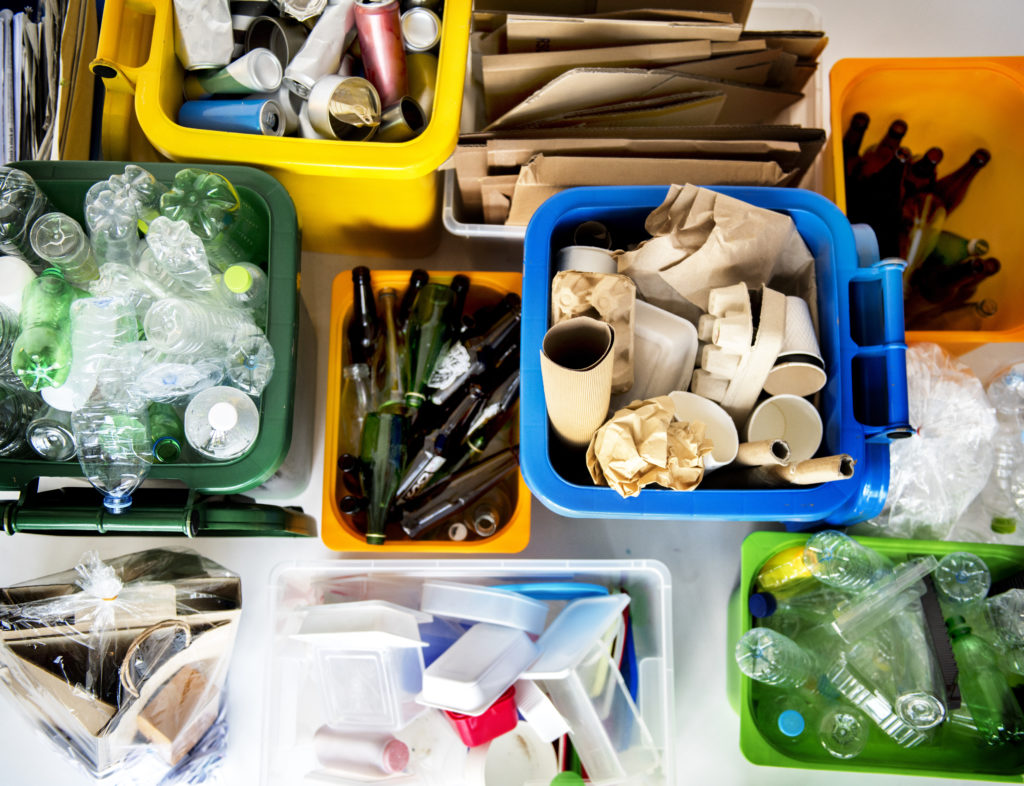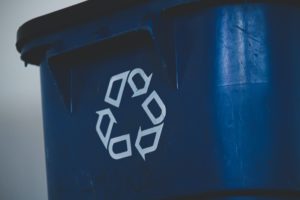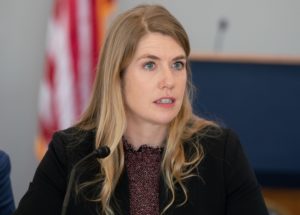
Press Release
Consumer Brands Association Spearheads Initiative to Reimagine America’s Recycling System
In partnership with industry and NGOs, group to provide federal policymakers with comprehensive recycling roadmap.
FOR IMMEDIATE RELEASE
Leslie Lake, 571-378-6757 [email protected]
ARLINGTON, Va. – Today, the Consumer Brands Association announced the launch of the Recycling Leadership Council, a diverse group of stakeholders from consumer-facing industries, packaging companies and the recycling ecosystem, to build a public policy framework to fundamentally reimagine the U.S. recycling system. The framework — The American Recycling Roadmap — will seek consistency in the recycling system and guide advocacy at the federal, state and local level. The group will convene for the first time today in a meeting hosted by the Senate Recycling Caucus co-chairs, Senators Boozman (R-Ark.) and Carper (D-Del.).
Initial members of the group are the American Beverage Association, AMERIPEN, Closed Loop Partners, the Consumer Brands Association, the Consumer Technology Association, the Distilled Spirits Council, the Food Marketing Institute, the Glass Packaging Institute, the Household & Commercial Products Association, the International Franchise Association, the National Restaurant Association, the National Retail Federation, The Recycling Partnership and the Wine Institute.
“The United States is facing a packaging and plastic waste crisis greatly exacerbated by nearly 10,000 unique recycling systems,” said Consumer Brands Association President and CEO Geoff Freeman. “The lack of consistency in America’s approach to recycling creates massive consumer confusion and fails to capitalize on the extraordinary advances that have been made in recyclable packaging. It is time for a drastically different approach, and we are proud to convene these critical stakeholders to develop a sound, scalable recycling policy platform.”
A recent survey found that 86% of Americans agree the world is facing a packaging and plastic waste crisis, and a staggering 93% believe that national recycling standards will alleviate confusion. Additionally, 77% of Americans view recycling as a public service, not a business.
While spanning disparate parts of the recycling ecosystem, the Recycling Leadership Council’s membership is united by the following guiding principles:
- Pursue big ideas to create modern and scalable solutions which maintain affordability, safety and reliability of consumer products.
- Seek uniformity of recycling rules and practices across the entire ecosystem.
- Identify long-term solutions that take precedence over short-term, competitive interests, with the goal of increasing sustainability and significantly reducing waste.
In the coming months, the Recycling Leadership Council will host regional roundtables across the country, bringing together diverse stakeholders to discuss best practices in current industry action, technological innovation and public-private partnerships, as well as examine the challenges faced by local recycling systems. Each roundtable will help the Recycling Leadership Council understand what is and is not working in different regions of the United States and allow the group to identify scalable themes and policy solutions. Key findings from each roundtable will be summarized and shared publicly.
“In a circular economy, action from all stakeholders is needed to create real change — and the time for action is now,” said Consumer Brands Association Vice President of Packaging and Sustainability Meghan Stasz. “The commonality among the council’s participants is a readiness to dig deeper, think bigger and work harder, together, to find recycling solutions that will actually work for industry, consumers and the environment.”
###
The Consumer Brands Association champions the industry whose products Americans depend on every day, representing more than 1,700 iconic brands. From household and personal care to food and beverage products, the consumer packaged goods industry plays a vital role in powering the U.S. economy, contributing $2 trillion to U.S. GDP and supporting more than 20 million American jobs.
Published on January 15, 2020



